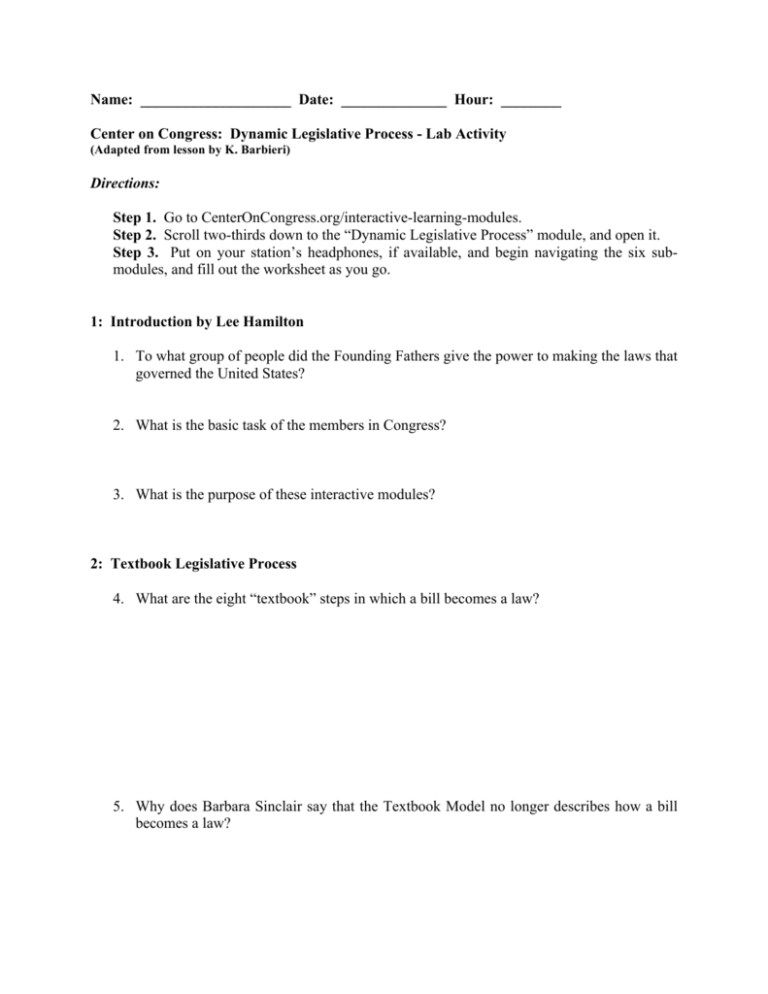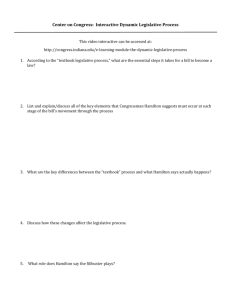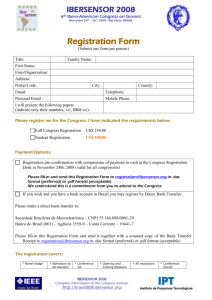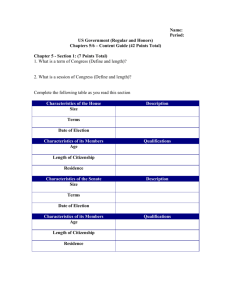Center on Congress: Dynamic Legislative Process
advertisement

Name: ____________________ Date: ______________ Hour: ________ Center on Congress: Dynamic Legislative Process - Lab Activity (Adapted from lesson by K. Barbieri) Directions: Step 1. Go to CenterOnCongress.org/interactive-learning-modules. Step 2. Scroll two-thirds down to the “Dynamic Legislative Process” module, and open it. Step 3. Put on your station’s headphones, if available, and begin navigating the six submodules, and fill out the worksheet as you go. 1: Introduction by Lee Hamilton 1. To what group of people did the Founding Fathers give the power to making the laws that governed the United States? 2. What is the basic task of the members in Congress? 3. What is the purpose of these interactive modules? 2: Textbook Legislative Process 4. What are the eight “textbook” steps in which a bill becomes a law? 5. Why does Barbara Sinclair say that the Textbook Model no longer describes how a bill becomes a law? 3: Public Criticisms 6. Do you agree or disagree that the slow pace of Congress is a problem? Why? 7. Why did the Framers of the Constitution intend the lawmaking process to be slow? 8. Do you agree or disagree that the arguing in Congress is a problem? Why? 9. What does the response from “Republic on Trial” say about conflict in Congress? 10. Do you agree or disagree that compromise in Congress is a problem? Why? 11. What are ideas for and against compromise in Congress? 12. Do you agree or disagree that the role of special interests is a problem in Congress? 13. What is the purpose of special interest groups? 14. Do you agree or disagree that the majority party in Congress should do what it wants? 15. How does the idea of “Rule of the Majority and the Rights of the Minority” look in our government and Congress? 16. How do your answers compare to the previous people’s responses to the same questions? 4: Dynamic Legislative Process 17. Why is it difficult for a bill to get through committee? 18. What happens to a bill if it loses support along any point in the legislative process? 19. What are ways that bills can sidestep the legislative process to move to a final House vote faster? (i.e., name 2+ alternative procedures) 5: Solid Results 20. What are 3 examples of achievements of Congress throughout U.S. history? 21. Listen to Bill Frenzel and John Hibbing. What are three important ideas from each speaker about Congress? 6: Lee Hamilton Summary and Links 22. Explain what Lee Hamilton means when he says “The legislative process is dynamic, complex, and untidy.”









